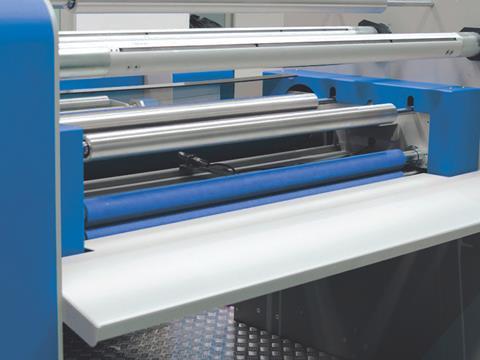
Konica Minolta has announced the launch of a new digital inkjet press for corrugated packaging.
The PKG-675i allows printers, converters, and brand owners to engage in on-demand packaging production – in light of the trend towards more customised printing for corrugated boxes.
The new machine is an inkjet device that can print short-run and personalised corrugated boards and folding cartons, flat or pre-die cut, while also allowing converters to create quick mock-up packaging designs.
Typical applications are, the company says, short-run ‘box-to-shell’ corrugated packaging for personal and household care and processed food, where the box is required to protect, promote, and deliver the product.
Konica Minolta aims to address new demand for mail order, distribution, internet, and e-commerce formats that have come about due to the effect of COVID-19 on consumer trends. Research by Smithers suggests that the pandemic has accelerated the demand for e-commerce packaging by two to three years, compared to pre-COVID forecasts.
Edoardo Cotichini, senior manager for professional print at Konica Minolta Business Solutions Europe, said: “The growth of e-commerce is one of the defining trends of the packaging industry going forward, and this will have a major impact for those in the corrugated packaging sector.
“In particular they need to be able to react fast, developing e-commerce-specific packaging designs that solve the inherent challenges of postal distribution, rather than those of retail. Versioning and personalisation are also on the rise. Creating high-quality proof-of-concept prototypes and short run, individualised batches is the sweet spot for the PKG-675i digital inkjet printer.”
Manufactured by Konica Minolta’s partner MTEX NS, and based on five Memjet CMYK printheads, which reportedly enable it to achieve a print width of 1,067 mm, the PKG-675i prints rich graphics on corrugated board at 1,600 x 1,600 dpi.
With what the company describes as “minimal pre-press interaction”, on-demand jobs can apparently be produced in high resolution at speeds of up to 18 metres per minute. The printer comes with a Caldera RIP and uses water-based inks which are FDA-approved for indirect food contact.













